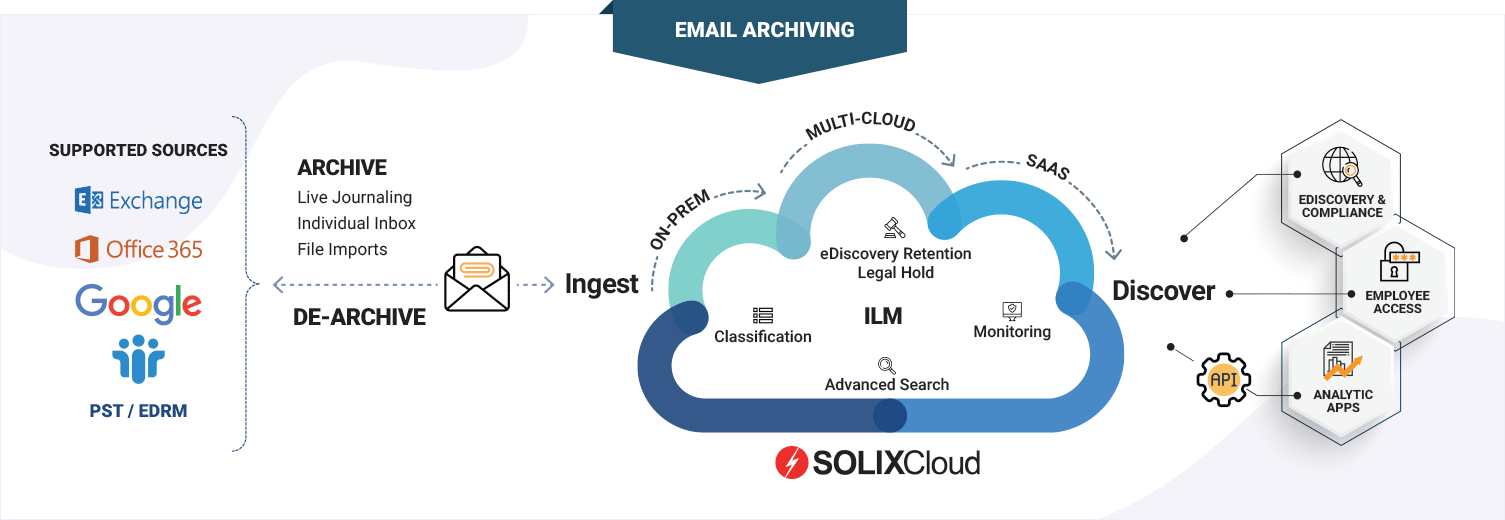Email Data Governance: Why It’s Your Company’s Next Big Challenge
In an era of ubiquitous digital communication, email remains the backbone of corporate correspondence. Yet many enterprises are discovering that managing their email data is far more complex than simply maintaining a Microsoft Exchange Server or Google Workspace environment. Welcome to the world of email data governance – a critical component of modern business operations that many executives are scrambling to master.
Listen to this blog

The stakes couldn’t be higher. With regulatory requirements tightening globally and data privacy laws like GDPR and CCPA imposing hefty fines for non-compliance, organizations can no longer afford to treat email archives as an afterthought. Recent analysis shows that companies facing email-related compliance violations paid an average of $5.6 million in fines in 2023, highlighting the urgent need for robust governance frameworks.
The challenge lies in the sheer volume of data. A typical enterprise generates millions of emails annually, each potentially containing sensitive information, contractual agreements, or crucial business decisions. This digital paper trail has become both an asset and a liability. While these communications can prove invaluable for business intelligence and legal protection, they also present significant risks if mismanaged.
Most email platforms contain native compliance features which have become a governance starting point for many organizations, but seasoned IT leaders know they’re just scratching the surface. Advanced email governance requires a sophisticated blend of technology, policy, and human oversight. Leading enterprises are implementing specialized email archiving solutions that offer features like legal hold management, advanced search capabilities, and automated retention policies.

The rise of remote work has added another layer of complexity to email governance. With employees accessing corporate email from various devices and locations, maintaining consistent control over data has become increasingly challenging. Forward-thinking companies are responding by implementing zero-trust security frameworks and enhancing their email governance policies to account for this distributed workforce reality.
Audit readiness has emerged as a crucial consideration. When auditors come knocking, organizations need to demonstrate not just that they have policies in place, but that these policies are consistently enforced and documented. This means maintaining detailed audit trails of email retention, deletion, and access patterns. Companies like Proofpoint and Mimecast have capitalized on this need, offering solutions that automatically generate compliance reports and maintain chain of custody documentation.
The financial services sector has been particularly proactive in this space. Major banks and investment firms are now archiving emails for up to seven years, with some maintaining records for even longer periods. These archives aren’t just storing messages – they’re implementing advanced analytics to flag potential compliance violations and insider trading risks in real-time.
Looking ahead, artificial intelligence is poised to revolutionize email governance. Machine learning algorithms are becoming increasingly adept at classifying sensitive information, identifying potential compliance risks, and automating retention decisions. Early adopters are already seeing significant reductions in manual review time and improved accuracy in compliance monitoring.
However, technology alone isn’t the answer. Successful email governance requires a cultural shift within organizations. Employees need to understand their role in maintaining compliance, and leadership must demonstrate a commitment to data governance that goes beyond mere lip service. Regular training programs and clear communication about governance policies are becoming standard practice among industry leaders.
The most successful organizations are treating email governance as a strategic initiative rather than a compliance burden. They’re leveraging their email archives for business intelligence, using advanced analytics to extract insights from historical communications while maintaining rigid compliance standards.
For enterprises looking to enhance their email governance, the path forward is clear: invest in robust archiving solutions (SOLIXCloud Email Archiving | Archive Emails Securely), develop comprehensive policies that account for modern work patterns, and cultivate a culture of compliance awareness. The alternative – risking millions in fines and reputational damage – is simply not an option in today’s regulatory environment.
Stephen Tallant
As the Director of Product Marketing at Solix Technologies, I lead the development and communication of the product and solution story to the market. I have over 25 years of experience in product marketing and product management, creating engaging messaging, launch plans, collateral, and content for various software solutions. I live in metro Philadelphia, and am a big sports fan - so much so, I sit on the Board of the Philadelphia Sports Hall of Fame. I attended Villanova University for both my undergraduate and graduate degrees.
